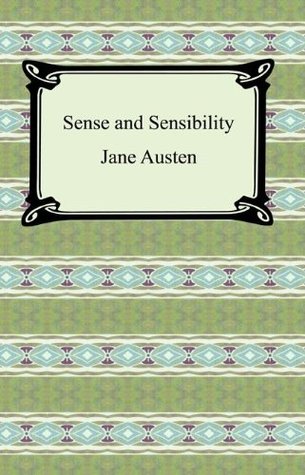More on this book
Community
Kindle Notes & Highlights
She had an excellent heart;—her disposition was affectionate, and her feelings were strong; but she knew how to govern them:
His kindness was not confined to words;
Colonel Brandon is certainly younger than Mrs. Jennings, but he is old enough to be my father; and if he were ever animated enough to be in love, must have long outlived every sensation of the kind. It is too ridiculous! When is a man to be safe from such wit, if age and infirmity will not protect him?"
Sometimes one is guided by what they say of themselves, and very frequently by what other people say of them, without giving oneself time to deliberate and judge."
Know your own happiness. You want nothing but patience—or give it a more fascinating name, call it hope.
"our situations then are alike. We have neither of us any thing to tell; you, because you do not communicate, and I, because I conceal nothing."
"Whoever may have been so detestably your enemy, let them be cheated of their malignant triumph, my dear sister, by seeing how nobly the consciousness of your own innocence and good intentions supports your spirits. It is a reasonable and laudable pride which resists such malevolence."
"No, no, no, it cannot be," she cried; "she cannot feel. Her kindness is not sympathy; her good-nature is not tenderness. All that she wants is gossip, and she only likes me now because I supply it."
She felt the loss of Willoughby's character yet more heavily than she had felt the loss of his heart;
He had just compunction enough for having done nothing for his sisters himself, to be exceedingly anxious that everybody else should do a great deal; and an offer from Colonel Brandon, or a legacy from Mrs. Jennings, was the easiest means of atoning for his own neglect.
Elinor agreed to it all, for she did not think he deserved the compliment of rational opposition.
But I did not love only him;—and while the comfort of others was dear to me, I was glad to spare them from knowing how much I felt.
after all that is bewitching in the idea of a single and constant attachment, and all that can be said of one's happiness depending entirely on any particular person, it is not meant—it is not fit—it is not possible that it should be so.—Edward
rejoiced in tears of agony
Do not think yourself excused by any weakness, any natural defect of understanding on her side, in the wanton cruelty so evident on yours.
You had made your own choice. It was not forced on you. Your wife has a claim to your politeness, to your respect, at least. She must be attached to you, or she would not have married you. To treat her with unkindness, to speak of her slightingly is no atonement to Marianne—nor can I suppose it a relief to your own conscience."
The world had made him extravagant and vain—Extravagance and vanity had made him cold-hearted and selfish. Vanity, while seeking its own guilty triumph at the expense of another, had involved him in a real attachment, which extravagance, or at least its offspring, necessity, had required to be sacrificed. Each faulty propensity in leading him to evil, had led him likewise to punishment.
His own enjoyment, or his own ease, was, in every particular, his ruling principle."
"At present," continued Elinor, "he regrets what he has done. And why does he regret it?—Because he finds it has not answered towards himself. It has not made him happy. His circumstances are now unembarrassed—he suffers from no evil of that kind; and he thinks only that he has married a woman of a less amiable temper than yourself.
she condemned her heart for the lurking flattery, which so much heightened the pain of the intelligence.
your mother has brought on herself a most appropriate punishment. The independence she settled on Robert, through resentment against you, has put it in his power to make his own choice; and she has actually been bribing one son with a thousand a-year, to do the very deed which she disinherited the other for intending to do. She will hardly be less hurt, I suppose, by Robert's marrying Lucy, than she would have been by your marrying her."
The whole of Lucy's behaviour in the affair, and the prosperity which crowned it, therefore, may be held forth as a most encouraging instance of what an earnest, an unceasing attention to self-interest, however its progress may be apparently obstructed, will do in securing every advantage of fortune, with no other sacrifice than that of time and conscience.


